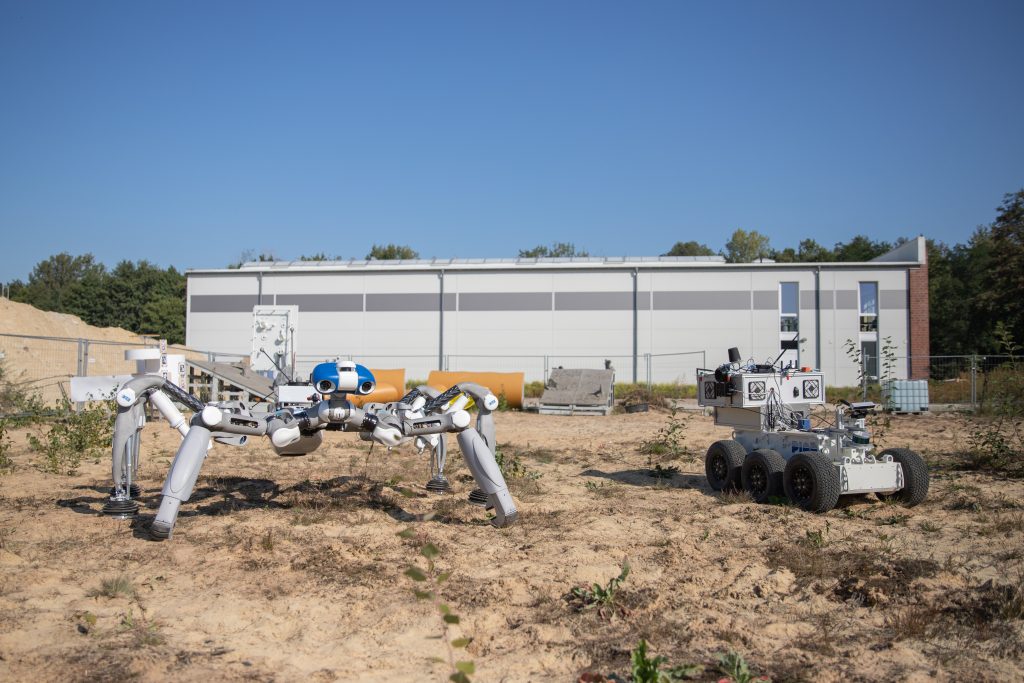The German Research Centre for Artificial Intelligence (DFKI) in Bremen hosted the Phase 1 in-situ integration and testing in September 2020. All relevant consortium partners participated in this testing campaign, which marked a major a milestone with both Veles and Mantis robots tested together. Due to the current limitations caused by the pandemic, some of the partners were connected remotely to these tests.
The Phase 1 tests lasted one and a half weeks. The main objectives were to install new software on both robots, and interface them with partner robots and software modules. The consortium focused on controlling the motion of robots, and gathering data sets for image processing and telemetry with both robots. This has been used since then for various offline tests.
In the image below you can also see the ISRU (In-Situ Resource Utilization) mock-up assembled inside DFKI’s Lunar Hall. This mock-up represents the lander and the different ISRU elements the robots will manipulate in the next tests.

The consortium recorded indoor and outdoor datasets during Phase 1 of testing. The indoor tests were performed in DFKI’s Lunar Hall, as shown in the accompanying image. The outdoor datasets were recorded at a testing area next to DFKI’s premises. This testing scenario was terraformed to make it as similar as possible to a Lunar scenario by clearing the vegetation and adding different sized stones and rocks to the area.
During testing stringent COVID-19 precaution measures and constraints were followed according to both the host institution and host national guidelines. The safety of all consortium member participants is of paramount importance while pursuing PRO-ACT technical objectives.

The next steps on the project would be to continue with the integration, to be held remotely due to the current Covid-19 situation, and to exploit the datasets gathered to perform various algorithms performance analysis.

